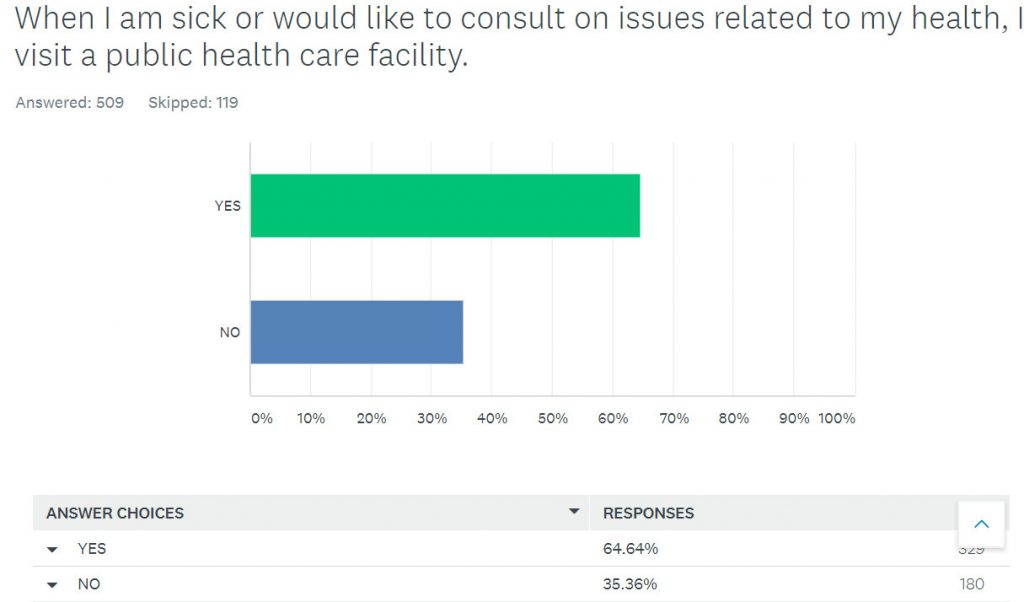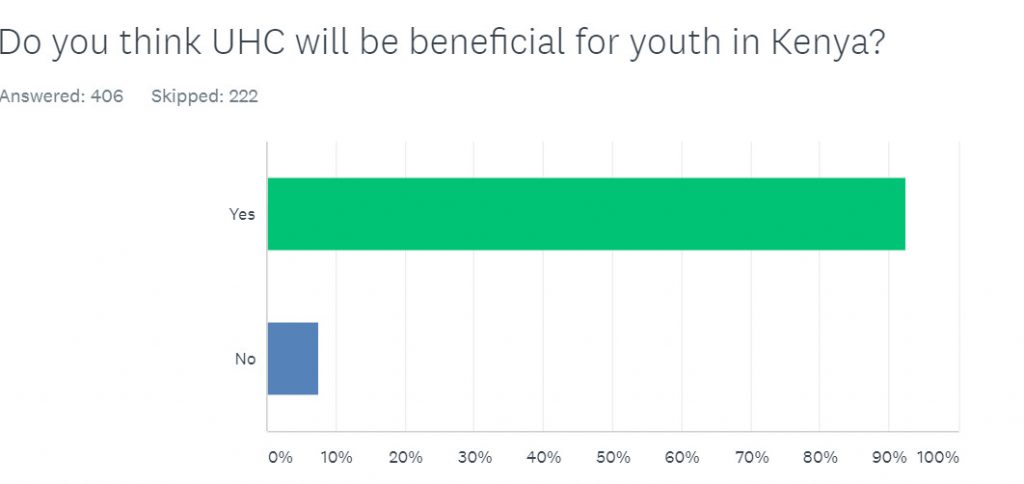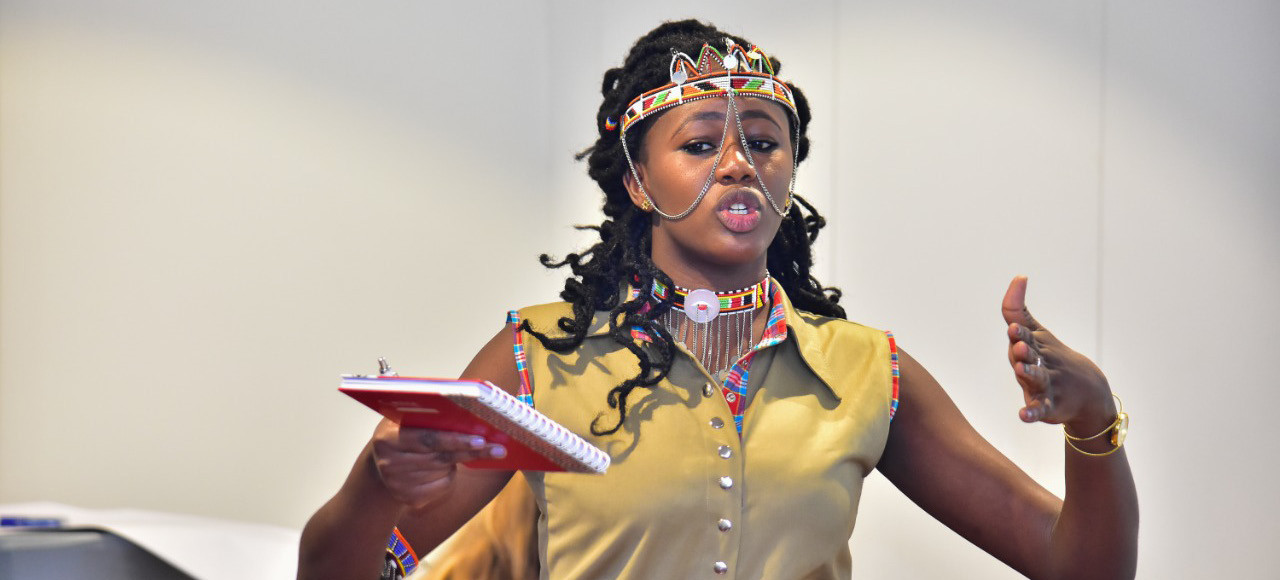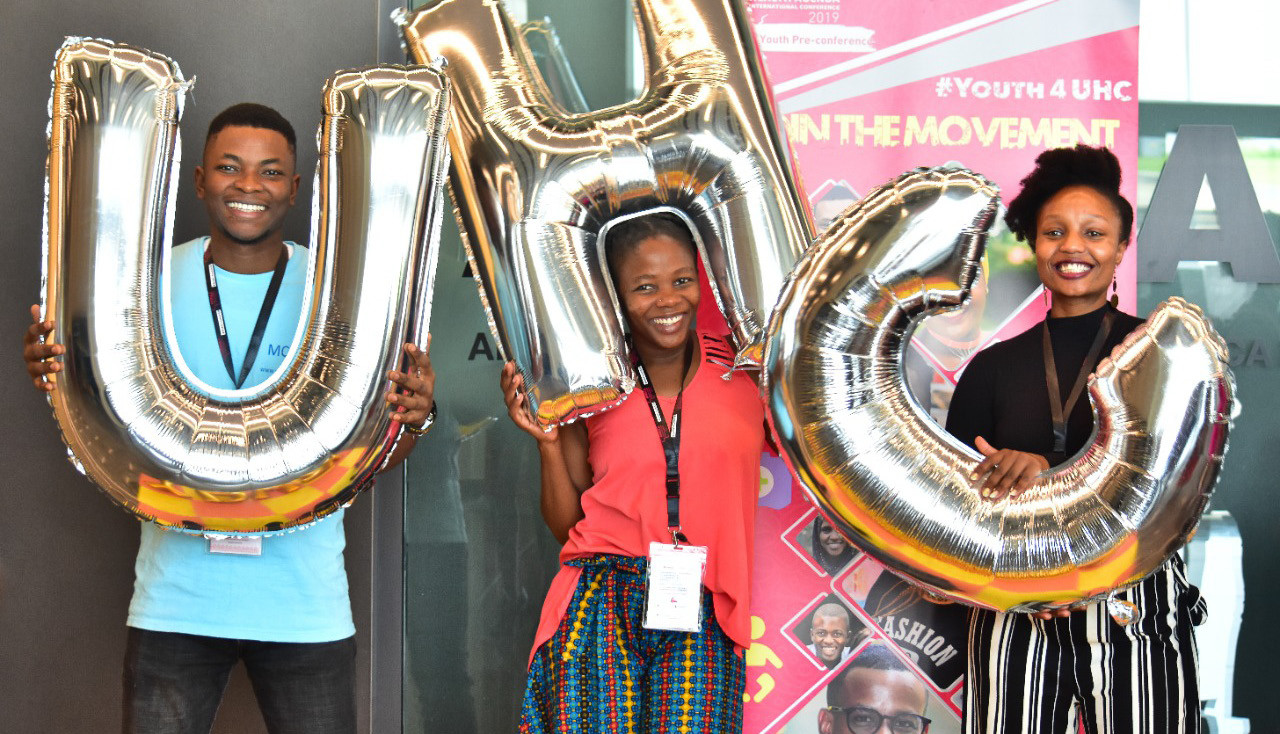The absolute number of youth in Kenya is steadily increasing (currently at an estimated 9.5 million). Awake to this critical demography young people need to be essential partners across all aspects of Universal Health Coverage, from formulating goals and designing policy to implementing programmes and adopting lessons learned. In Kenya there is a tendency to deprioritise health resources especially for Adolescent and Youth Sexual and Reproductive Health (AYSRH).
There is need therefore to influence and cement how UHC is shaped to continue meeting the needs of all particularly the adolescent and youth; holding the government accountable to deliver quality and affordable health care services that are aligned to the people’s needs.
The human right to health has been enshrined in Kenya’s development blueprint, Vision 2030 and the Big Four Agenda that is, the realization of a society where “no one is left behind’.
DESCRIPTION OF INTERVENTION

36% percent of youth did not visit public health facilities, citing various barriers including lack of awareness, lack of needed amenities, scarcity of drugs, lack of youth friendly services and long waiting times.

Most importantly 93% of the youth hoped, and believed that UHC would be beneficial to them, more specifically, in reducing the financial burden, enhancing quality of health care that addresses their needs, and empowering them with information.
Despite Kenya’s progress on Universal Health Coverage, more needs to be done in influencing UHC policies country-wide with a focus on youth as key drivers to hold decision-makers responsible on their commitments and the full implementation of pre-existing policies to reflect their needs and priorities.
UHC in Kenya can only gain momentum if the paradigm of youth-led social accountability is applied as an archetype. Through capacity strengthening young people can amplify their voice and make apt call to action on the commitments made by policy makers.




